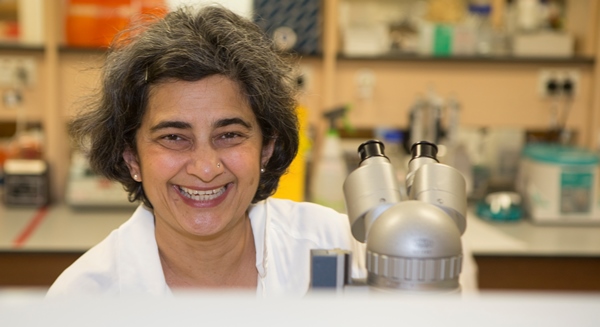Marcus Butler
19 May 2015: University of Canberra researchers and colleagues from the University of Georgia will soon test the use of cancer drugs to treat a common respiratory virus that seriously affects infants; thanks to a highly-sought-after grant from the US National Institutes of Health.
University of Canberra associate professor of microbiology Reena Ghildyal and colleagues have been awarded NIH funding worth US $450,000 (AU $561,000) over the next two years to examine the effect of chemicals developed for cancer treatment on the respiratory syncytial virus (RSV).
Dr Ghildyal, who is also the deputy director of the University of Canberra Health Research Institute, said RSV is a common virus which causes respiratory infections, primarily in infants and the elderly.
She will be working closely with University of Georgia’s Professor Ralph Tripp who has already produced some good results targeting influenza-like viruses with cancer drugs. The project will commence in July 2015.
“RSV produces cold-like symptoms and is more serious in young children causing a significant number of hospital visits for infants,” Dr Ghildyal said.
“All of the initial experiments in cell culture will be carried out at the University of Canberra, while further development and trialling will be conducted at the University of Georgia.”
Dr Ghildyal said there is a growing awareness that many of our currently licensed drugs may have other uses which have not yet been identified, but this may be the first time a development like this, using drugs which were once too toxic for anything but lifesaving therapy, has been proposed.
“Together, the University of Canberra team and Professor Tripp’s team are aiming to show that our rationale is correct and the treatment will work in cell culture and in animal models,” she said.
NIH grants are highly competitive with only around 10-15 per cent of applicants receiving funding each year. Dr Ghildyal said less than 0.05 per cent of funded NIH grants include an Australian co-investigator.



